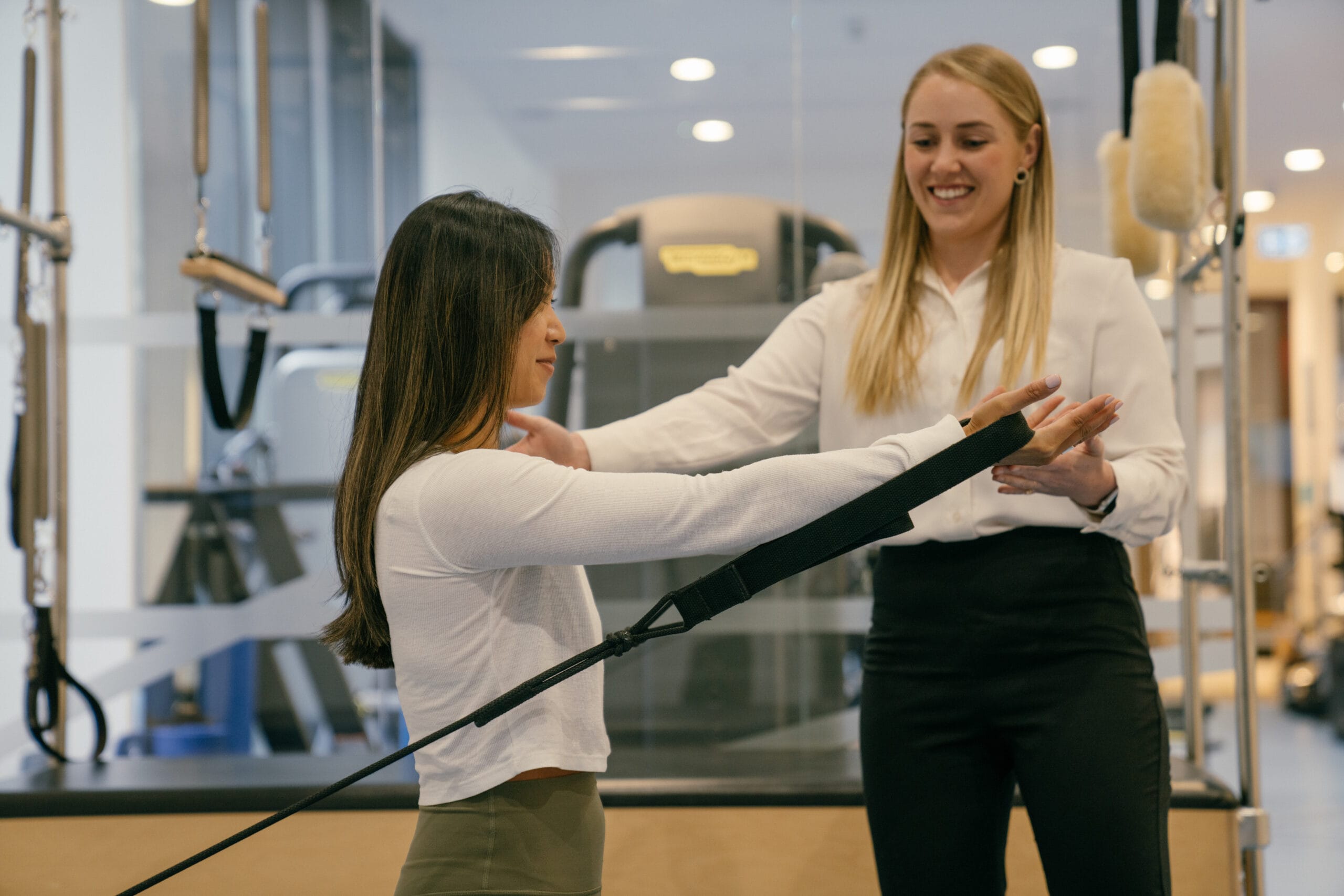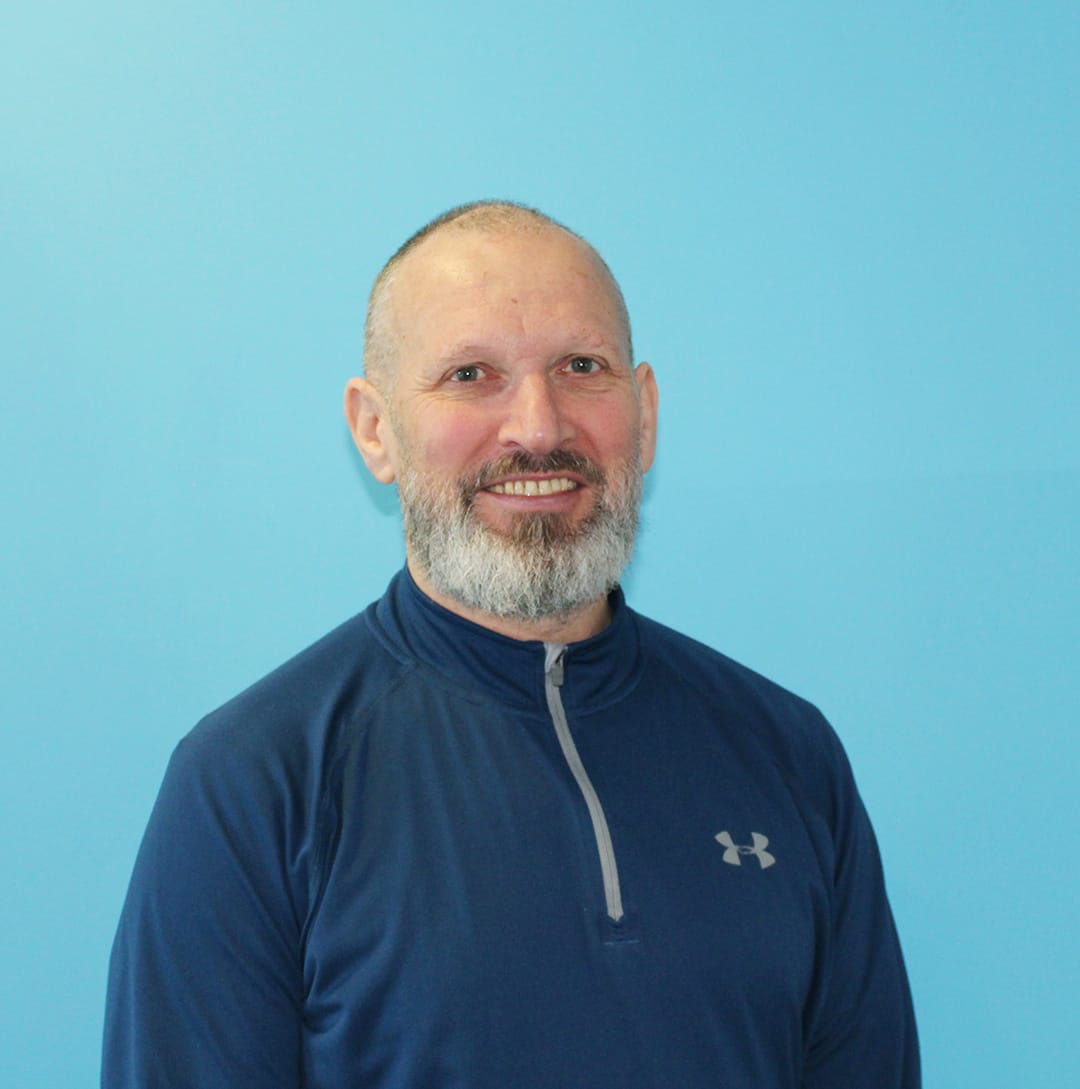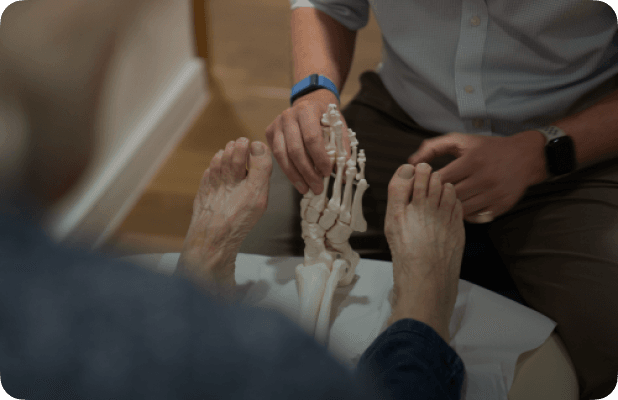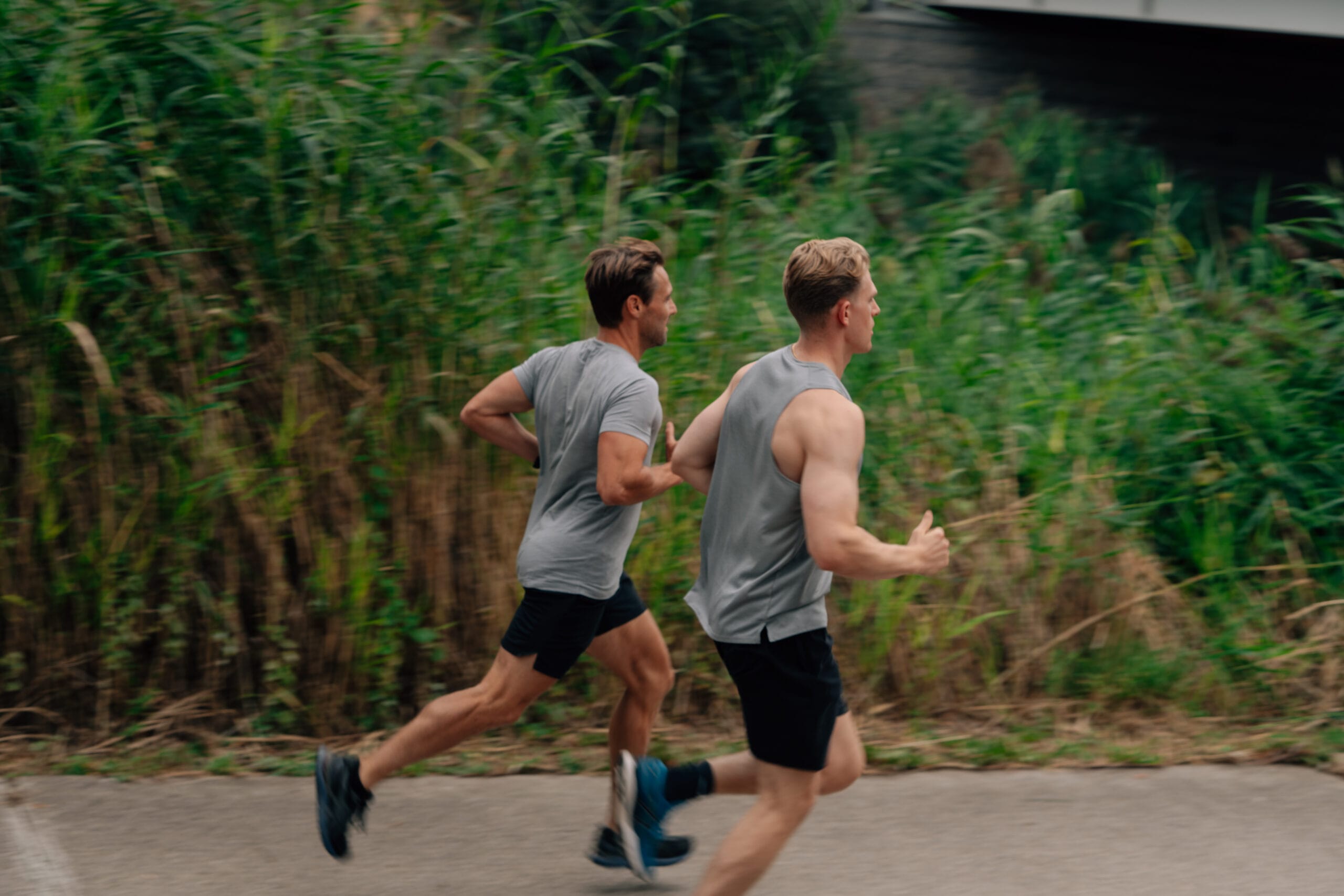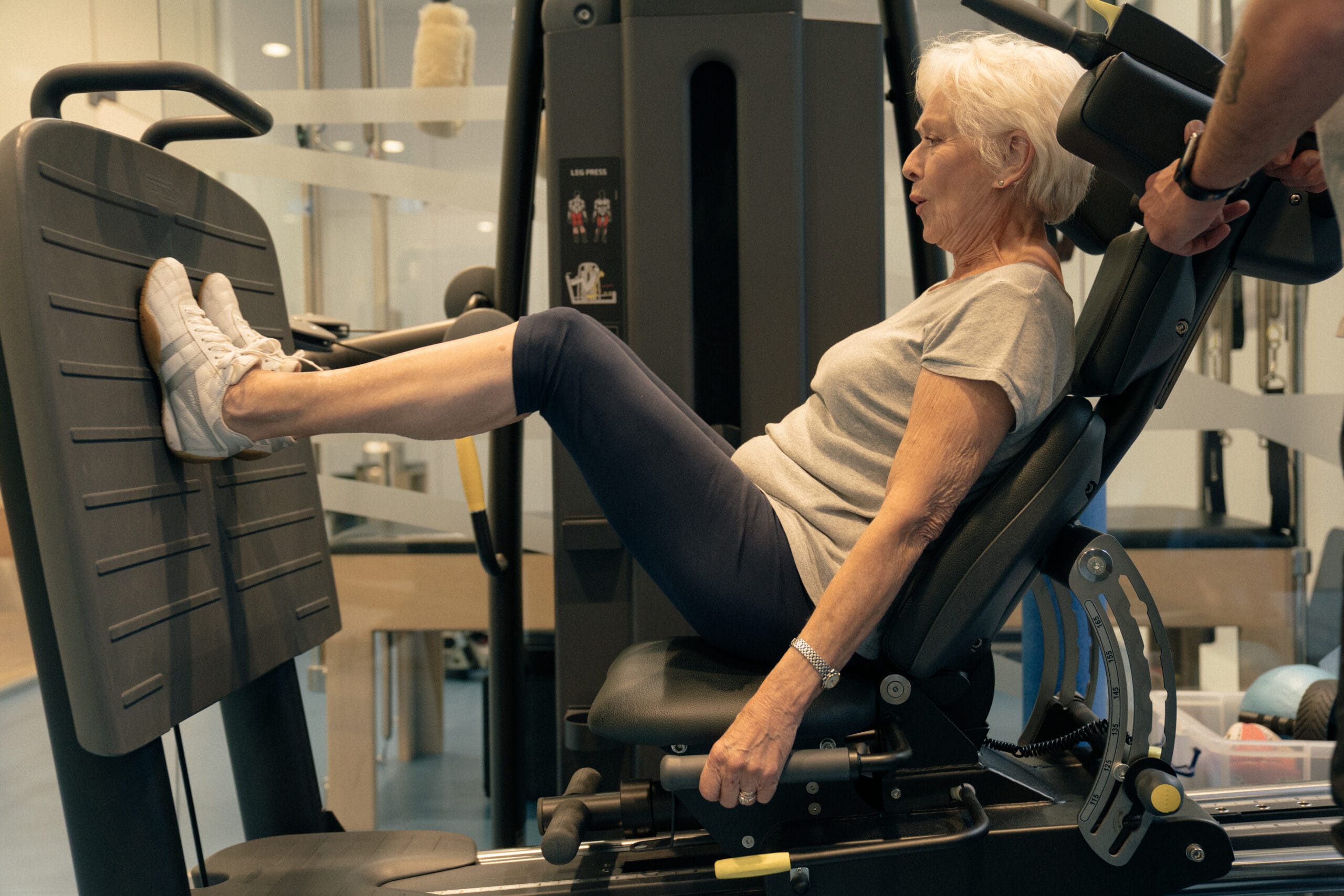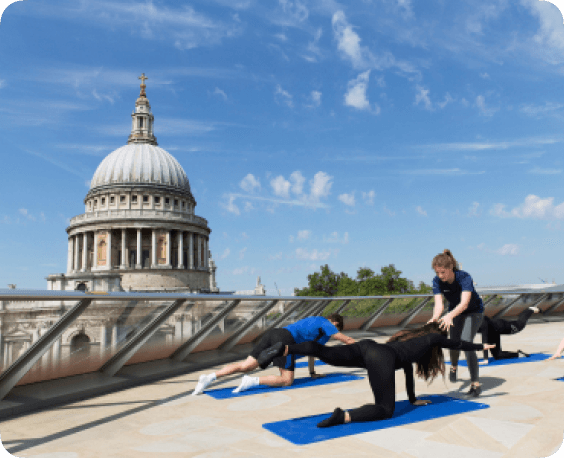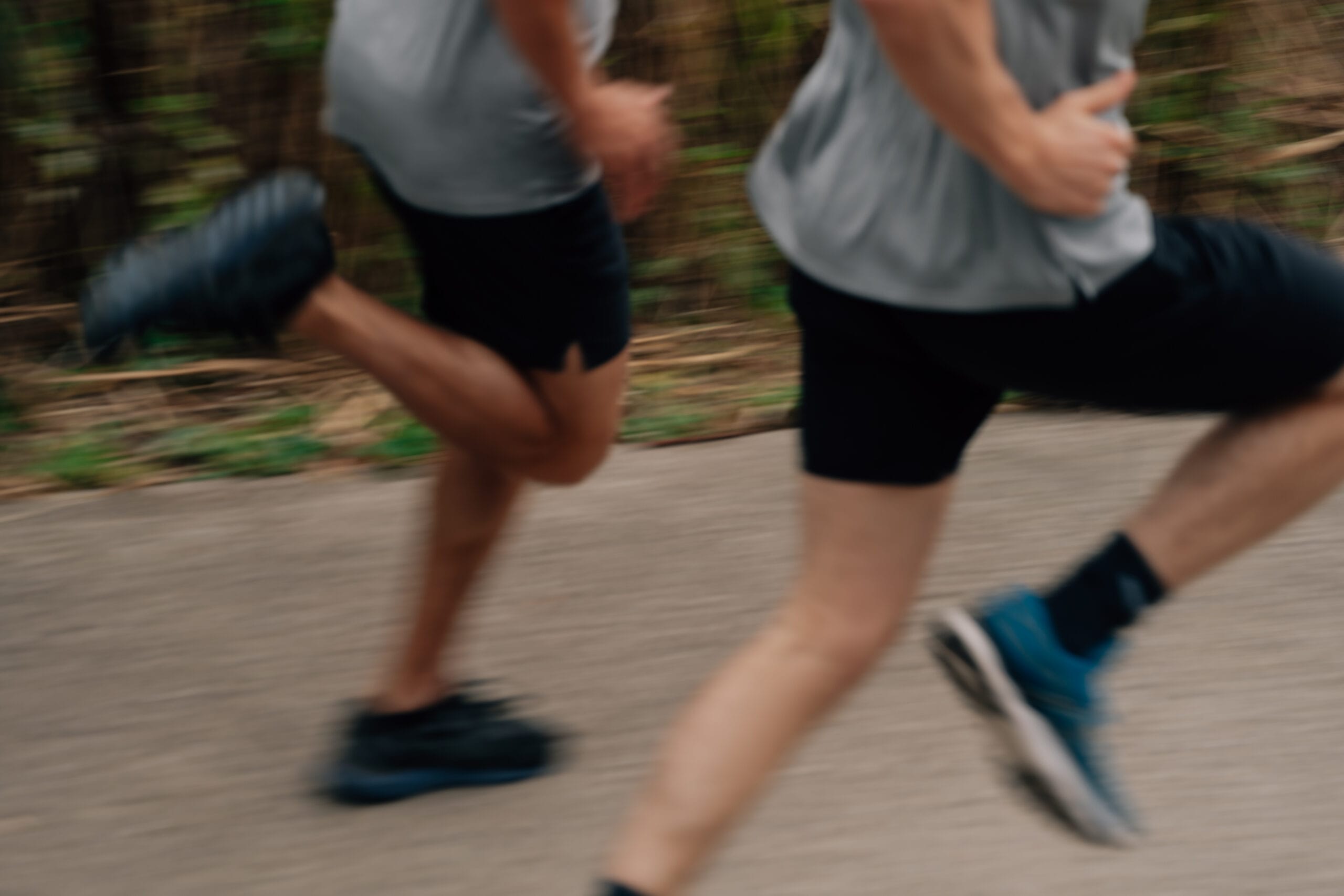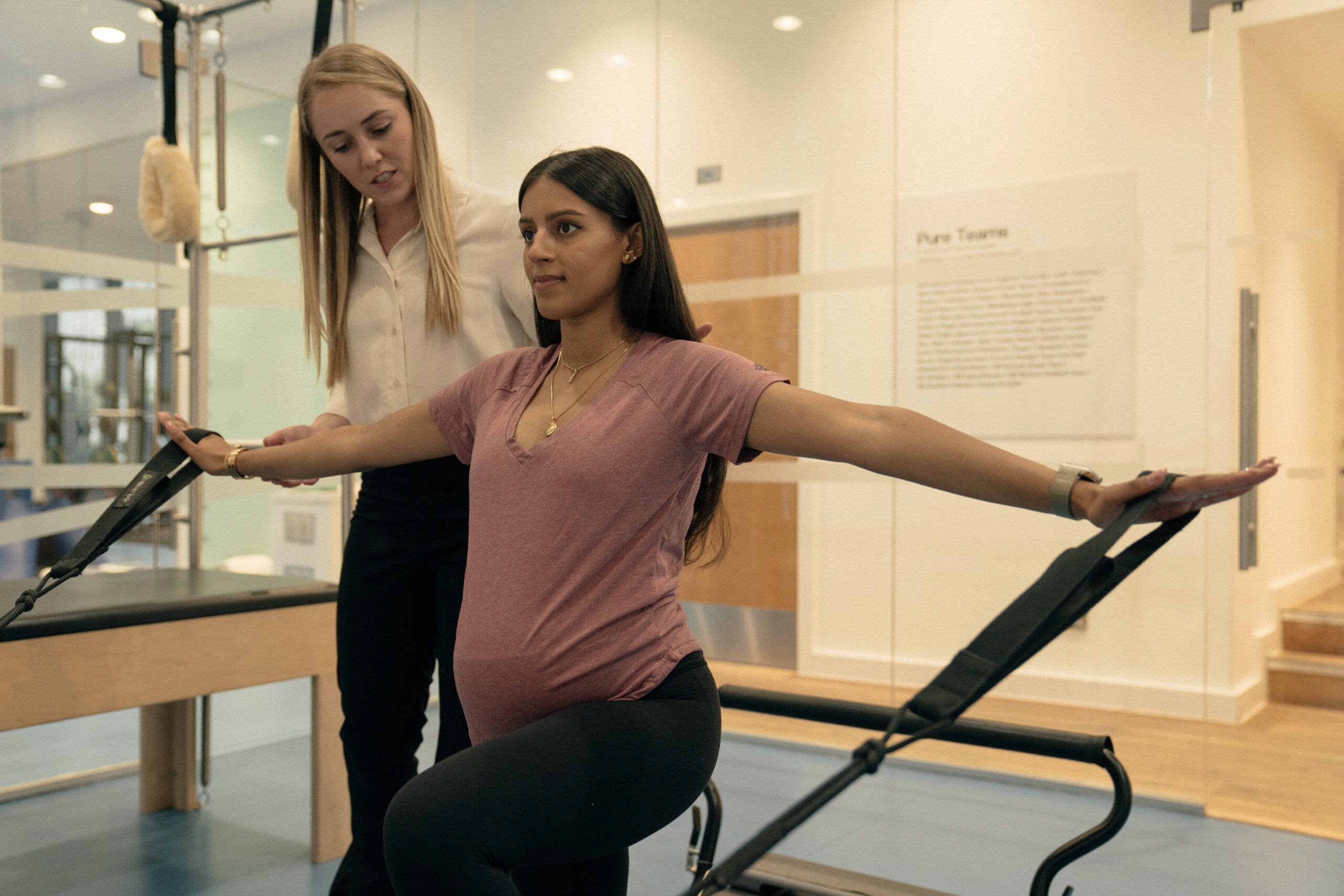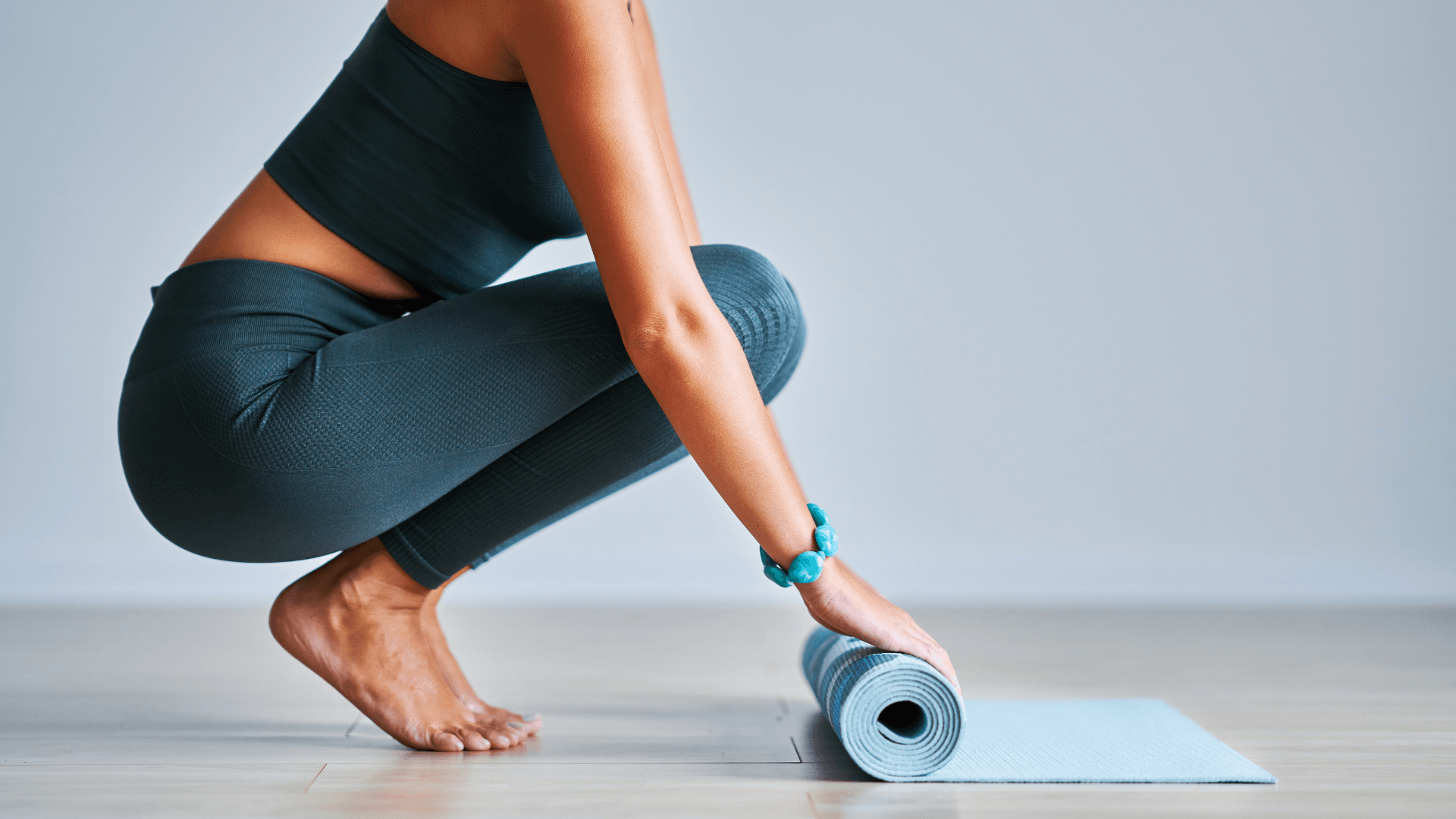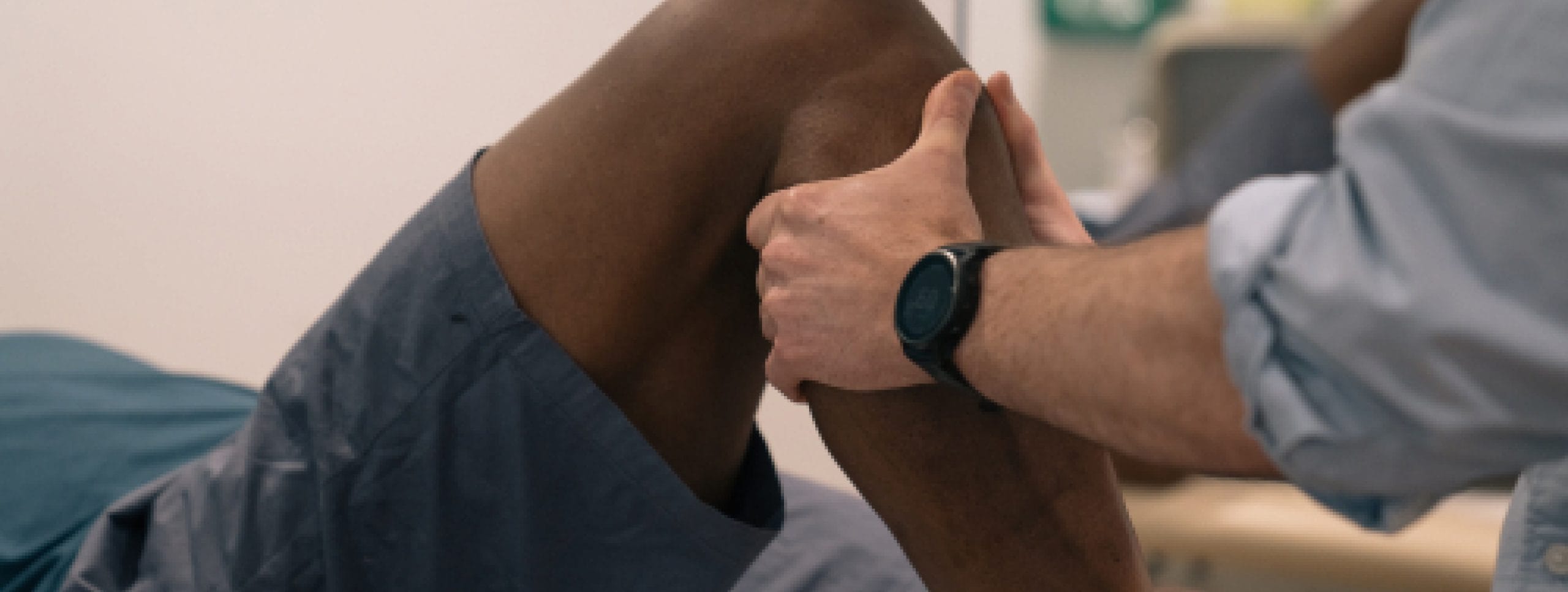
Pilates
Pilates is an exercise method that focuses on quality of movement with an emphasis on length, breath and working from the ‘core’.
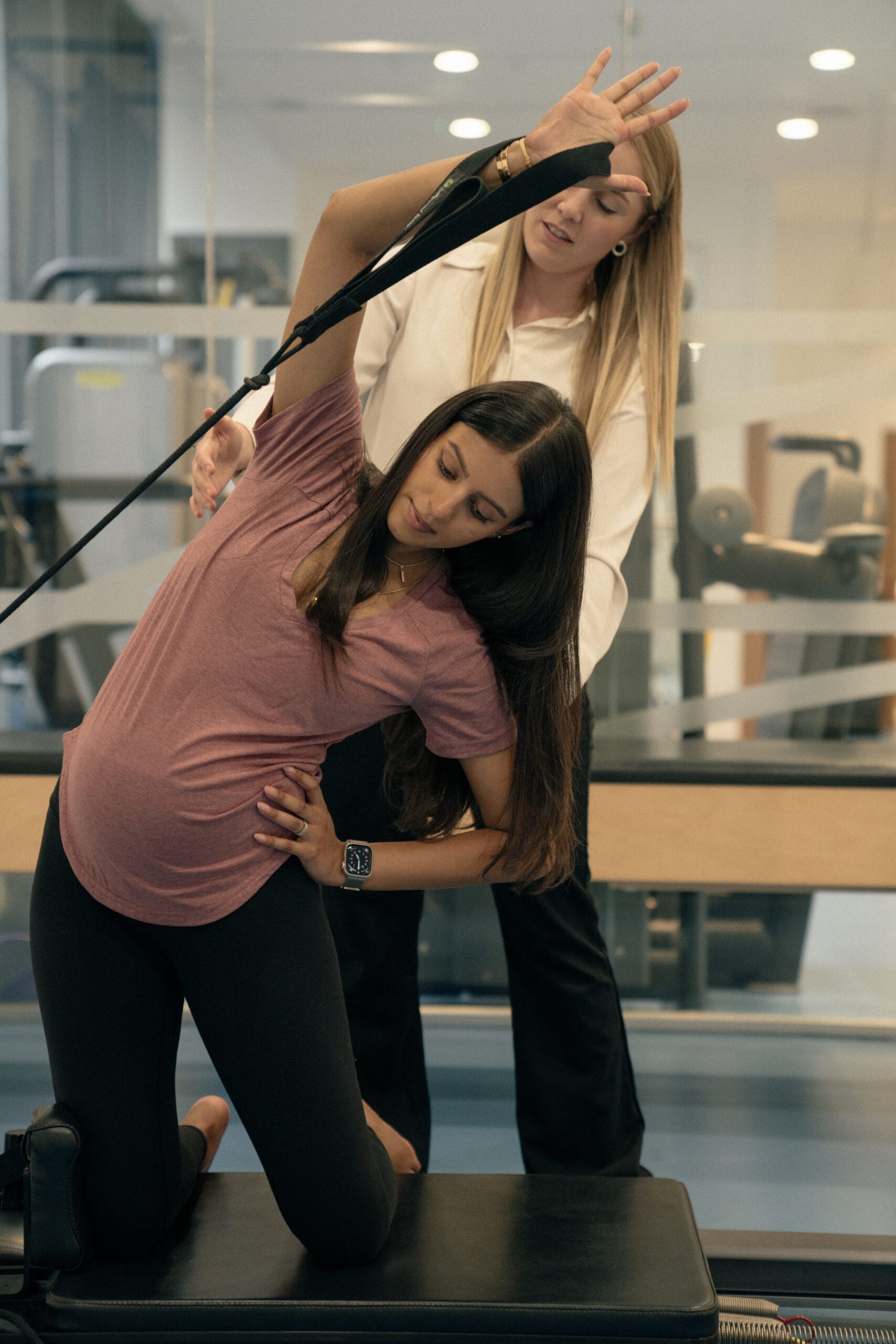
Your first 1:1 Pilates session will be a movement assessment in which the Instructor will introduce you to the principles of Pilates, looking at your movement patterns and areas of imbalance, using a range of equipment (reformer, chair, cadillac etc).

Following the assessment, the Instructor will help you set your unique training goals. Future sessions will work towards achieving these and will be adjusted as you progress, to provide a truly bespoke experience.
If you are seeing another clinician, your Pilates instructor will communicate with this person to help develop the best possible programme for you.
Book an appointmentPilates Specialists
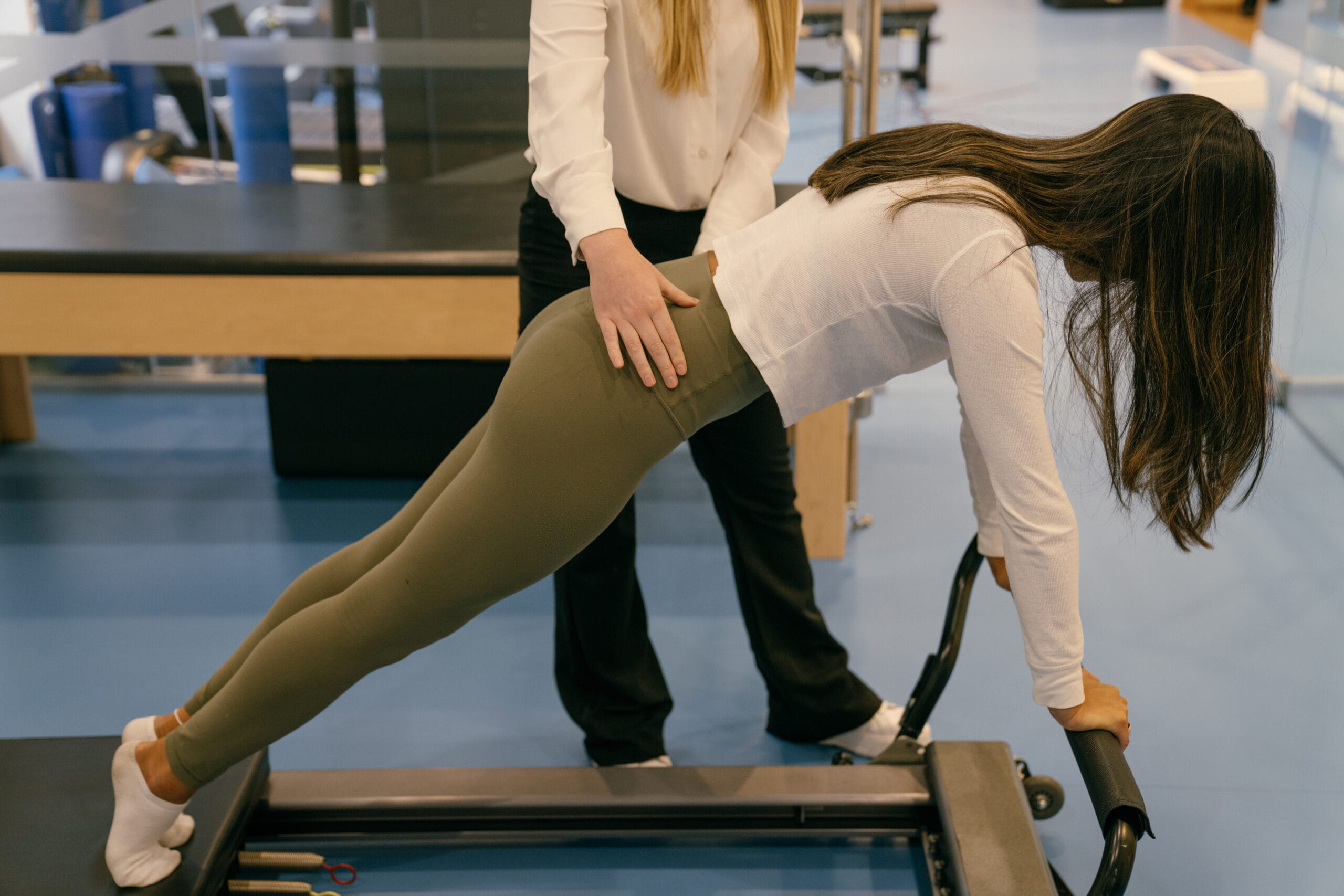
Pricing
- Single 1:1 session (60 mins) – £107
- 6-session pack (6% discount) – £606
- 10-session pack (10% discount) – £960
- 20-session pack (20% discount) – £1,720
- Pilates classes – available at Raynes Park (please contact us to find out more and make a booking)
Among a number of benefits,
Pilates can improve:
Pilates is an effective method for improving core mobility and strength, as it focuses on controlled movements that engage the deep muscles of the abdomen, lower back, and pelvis. Through exercises that emphasise proper alignment, flexibility, and balance, Pilates helps to strengthen the core, improve posture, and enhance spinal stability. Regular practice increases muscle endurance, coordination, and flexibility, leading to better mobility and reduced risk of injury. By targeting both the larger and smaller stabilising muscles, Pilates offers a holistic approach to building a strong, functional core that supports overall movement and daily activities.
Pilates can greatly enhance breathing technique by teaching individuals to focus on controlled, deep breathing that supports movement. The practice emphasises the importance of diaphragmatic breathing, which involves breathing deeply into the lungs and using the diaphragm rather than shallow chest breathing. This type of breathing helps increase lung capacity, improve oxygen flow, and reduce stress. By coordinating breath with movement, Pilates not only promotes relaxation but also enhances performance, as proper breathing supports muscle function and stamina. Regular practice can lead to better overall respiratory function and increased mindfulness of how breathing affects both physical and mental well-being.
Pilates is an excellent way to improve flexibility by focusing on controlled, flowing movements that stretch and lengthen muscles throughout the body. The exercises are designed to target specific muscle groups, increasing the range of motion and promoting balance between strength and flexibility. Pilates emphasises proper alignment and posture, which helps improve joint mobility and reduce muscle tightness. By regularly practicing Pilates, individuals can experience enhanced flexibility, reduced stiffness, and improved overall mobility, making it a valuable addition to any fitness routine.
Pilates helps improve body awareness by encouraging mindfulness in movement and emphasizing the connection between the mind and body. Through controlled, purposeful exercises, practitioners learn to focus on proper alignment, breathing, and posture, which enhances their ability to recognize and correct imbalances or areas of tension. This heightened awareness helps individuals develop a deeper understanding of how their body moves, leading to improved coordination, balance, and overall body control. By cultivating body awareness, Pilates can also help prevent injury, improve performance in other activities, and promote better posture in daily life.
Pilates is a great way to enhance coordination by focusing on the precise execution of controlled movements. The exercises involve both small and large muscle groups working together, promoting synchronisation and balance. As practitioners progress through the routine, they learn to engage multiple muscle groups simultaneously, improving their ability to coordinate movements in everyday activities and other sports. The emphasis on breathing and mindful movement in Pilates also helps foster better timing and fluidity, leading to improved motor skills and overall body control. Regular practice can significantly boost both fine and gross motor coordination.
Pilates is highly effective in improving balance by strengthening the core muscles and enhancing body awareness. Many Pilates exercises focus on stabilising the torso while engaging the limbs, promoting better control over movement and posture. The practice encourages the development of both strength and flexibility in the muscles that support the spine, hips, and legs, which are essential for maintaining balance. Additionally, Pilates challenges the body in different positions, such as on one leg or in unstable positions, which helps improve coordination and stability. Regular practice can lead to better overall balance, reducing the risk of falls and enhancing functional movement.
Pilates can significantly enhance concentration by requiring practitioners to focus on their movements, breathing, and alignment throughout each exercise. The precision and control involved in Pilates demand mental engagement, encouraging mindfulness and attention to detail. As individuals learn to coordinate their body’s movements while maintaining proper form, they develop sharper focus and greater mental clarity. This mental discipline cultivated during Pilates sessions can transfer to other areas of life, improving overall concentration and the ability to stay present in daily activities. Regular practice not only strengthens the body but also sharpens the mind.
Pilates is highly effective in improving posture by strengthening the muscles that support proper alignment, particularly the core, back, and shoulders. The exercises emphasise spinal alignment and body awareness, helping individuals develop a deeper understanding of how their posture affects overall movement. By targeting weak or imbalanced muscles, Pilates encourages the engagement of stabilising muscles, promoting better posture both during activity and at rest. Regular practice helps correct postural imbalances, reduces muscle tension, and fosters a more natural, aligned position, leading to improved posture and a reduction in related discomfort or pain.
Discover more about Pilates
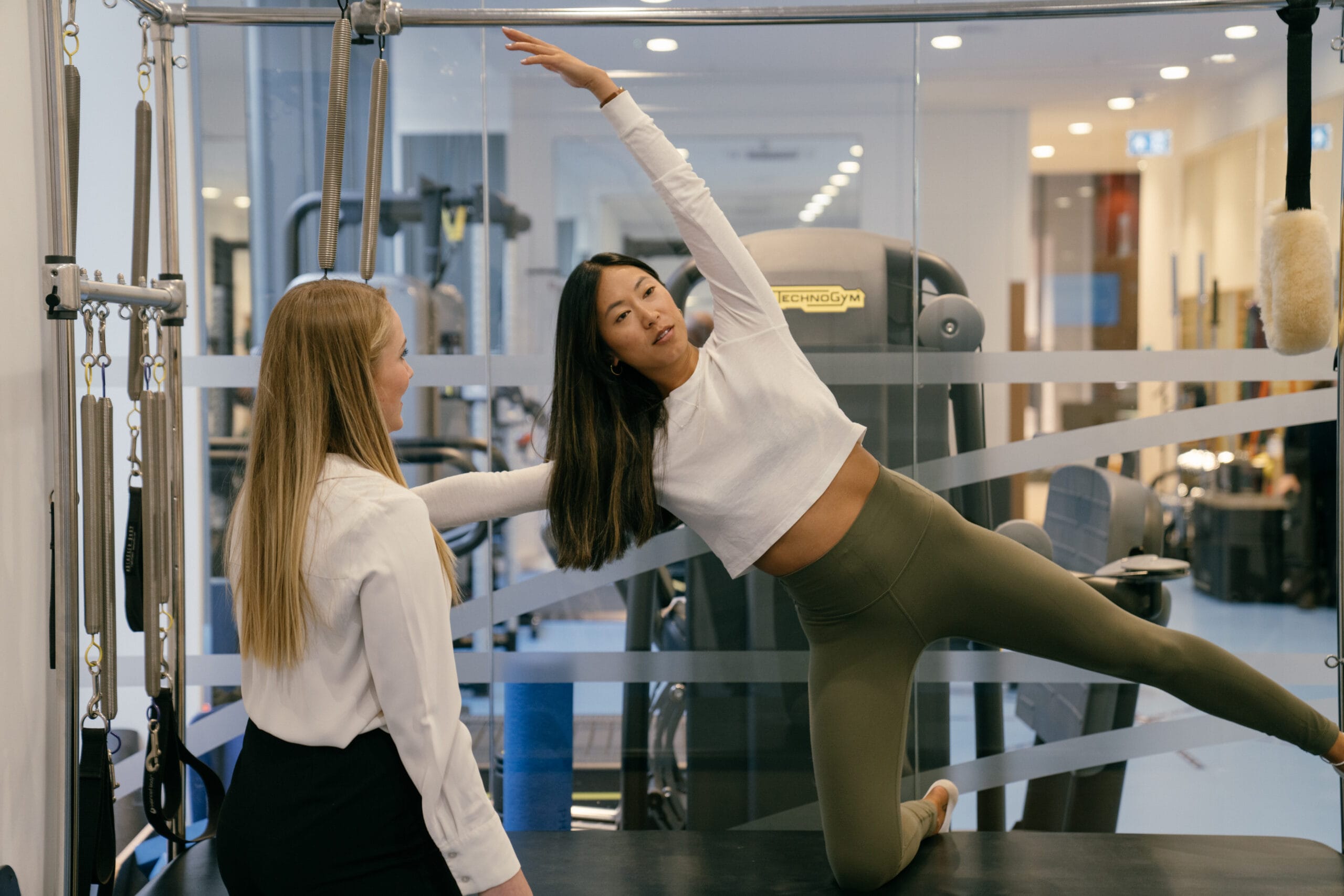
Your body is your most important investment, and it deserves more. Make sure you get the tailored care and treatment your individual needs require.
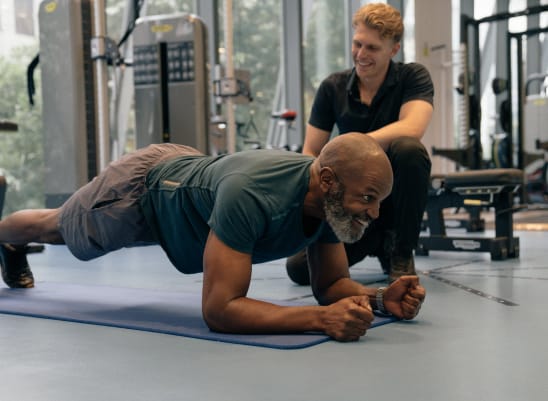
-
Work with a dedicated team of specialists, tailored to meet your specific needs and goals.
-
We combine over 1,000 years of expert experience in musculoskeletal healthcare and elite sport.
-
We are covered by all major insurers and also offer flexible self-pay options for added convenience.
Your Journey with Pure
Everything we do is personalised to you. Whether your goal is to run a marathon or simply walk up the stairs comfortably, we’ll deliver the correct diagnosis and tailored treatment you need to get there so that you can perform at your best and prevent reoccurrence.
Frequently asked questions
Pilates is a well established method of movement either mat or equipment based. Its inventor Joseph Pilates originally referred to his method as “Contrology” the art of knowing how to control & move the body.
Importantly, Pilates is available to all! It treats the body as a whole, helping to create a flexible, stable and strong body with a focus on breathing, promoting a strong mind/body connection. It can be safe through pregnancy and help through treatment for cancer and support a spectrum of diagnoses that may find other forms of exercise unsuitable.
Pilates is a broad spectrum of exercises that would be selected to best help the client in their current physical capacity and progress to reach the clients goals.
Pilates would be recommended by another clinician as part of a patients journey to recovery after a diagnosis has been made. It can be part of multi disciplinary approach including other services or as a stand alone service. Although observations are made with clinical discussion, Pilates is not a diagnosing service.
For those who have been recommended to do Pilates by an external clinician e.g. their GP the smaller group or 1:1 sessions delivered by an experienced Pilates instructor or Physiotherapist at PSM can help to deliver a safe experience and build confidence in the novice client.
The Pilates sessions and group classes are usually of 60 minutes but 90 minutes can also be offered for a 1:1 session.
Anyone can book to do a 1:1 Pilates session, but joining a group class needs to be discussed taking into account previous experience and any diagnosis. However only Pilates delivered by a Physiotherapist maybe covered by private medical insurers.
Pilates can be delivered safely when injured or in pain. It can offer a way of exercising when one part of the body is injured by being able to isolate the injured body part out of the exercises, providing support to off load the joint or facilitate movement at the correct load or movement through or against gravity.
The Pilates method can often help to reduce pain through the mind body connection, through the use of reciprocal inhibition and through stretches. Pilates can help to pre-habilitate and rehabilitate after surgery like a knee replacement.
Pilates is often known for its ability to help with back pain, but if the back pain is very recent or different to your usual back pain further diagnosis should be sought.
Joseph Pilates famously said “In 10 sessions, you will feel the difference. In 20 sessions, you will see the difference. And in 30 sessions, you will have a whole new body.”
In truth it’s a much more individual answer with some clients doing Pilates at PSM on a weekly basis that they continue with, for others it may be just enough sessions to return to their normal functions and goals. For some, once they feel confident and pain free they continue with Pilates but in a more commercial setting.
Pilates can be the only exercise routine that you do or it can be a great part of your weekly sporting activities. Helping as a recovery routine or ensuring that your range of movement is at an optimum to help you train with good form in the gym and help keep you agile for sports.
Focusing on the whole body, Pilates can help to balance out the over use movements common in many sports.
Pilates Posts
Pilates Classes
Our classes, held in our Raynes Park clinic and virtually, are unique, effective and enjoyable. Classes are small to ensure you get the most out of the session, and all exercises can be modified to suit your individual needs to positively contribute to your health & well-being.
